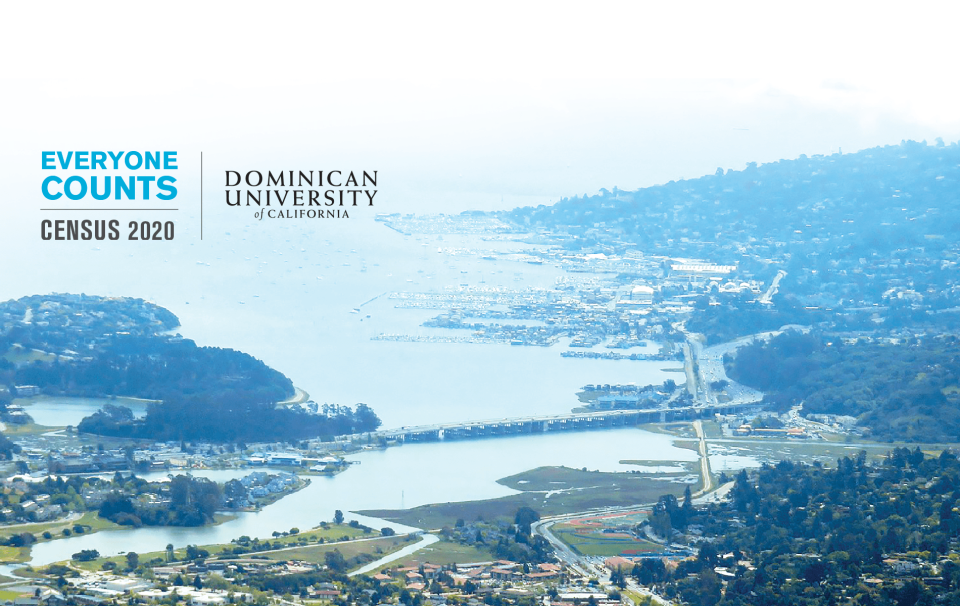Breadcrumbs
- News
- News Archive
- Census 2020

Dominican is collaborating with community partners throughout Marin County on a unique, hands-on initiative that integrates projects related to Census 2020 into more than a dozen courses. The goal of the “Everyone Counts: Census 2020” university-wide community engagement theme is to support an accurate census count by reaching the county’s hard-to-count communities and populations.
“Everyone Counts: Census 2020” was developed in partnership with Canal Alliance, a non-profit champion of immigrants. The census projects are being implemented in collaboration with the Marin Complete Count Committee and local non-profit organizations and government agencies.
“Dominican has set the stage for deeper participation in Census 2020 efforts to ensure that all people are counted in Marin County,” said Stephanie McNally, Advocacy and Policy Manager for Canal Alliance and the project lead for Marin County 2020 Census outreach.
In fall 2019 and spring 2020, Census 2020 projects will be integrated into a variety of courses, including occupational therapy, psychology, education, history, anthropology, and art. The work will involve more than 200 students throughout the academic year. Simultaneously, trusted messenger trainings and enumerator application workshops are being offered to all students and university employees.
“This initiative builds on effective practices in community engagement and the desire of faculty, staff, and students to deepen Dominican’s civic role in Marin,” says Julia van der Ryn, Executive Director of Dominican’s Center for Community Engagement.
“The census will have major implications for the allocation of federal resources and political representation, but more importantly it is about democratic values that promote dignity and opportunity for everyone. Full participation by all county residents is critical because census data is the one true picture we get of who lives in this country,” she added.
Due to limited fluency in English, housing instability, and poverty, some communities in Marin County—including Marin City, San Rafael’s Canal neighborhood, West Marin, and parts of Novato—are among the hardest to count in the U.S. The county’s hard-to-count populations also include the elderly and adults living with disabilities.
Courses integrating #MarinCensus2020 projects include:
Dominican and Canal Alliance have developed trusted messenger trainings at which students will gain knowledge about census process, confidentiality of data, and community benefits. They will also learn who is at risk of not being counted, and practice a shared, positive message through scenarios and role play. These trainings are being used as a template to be replicated by agencies throughout Marin.
Media Contact: Sarah Gardner, (415) 485-3239, sarah.gardner@dominican.edu